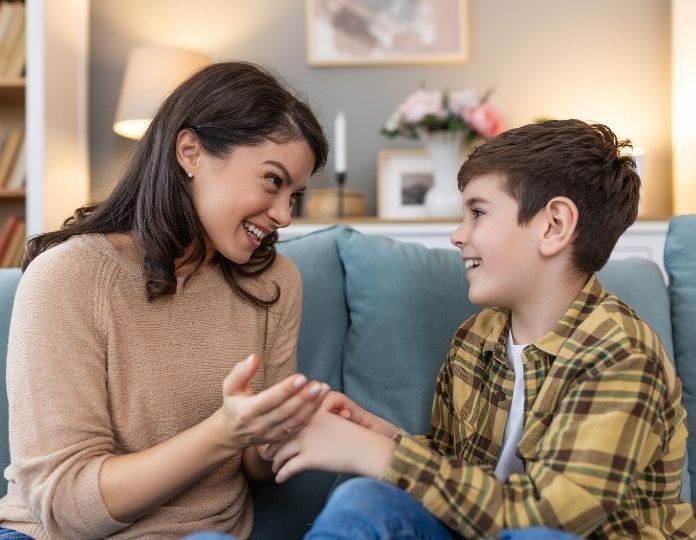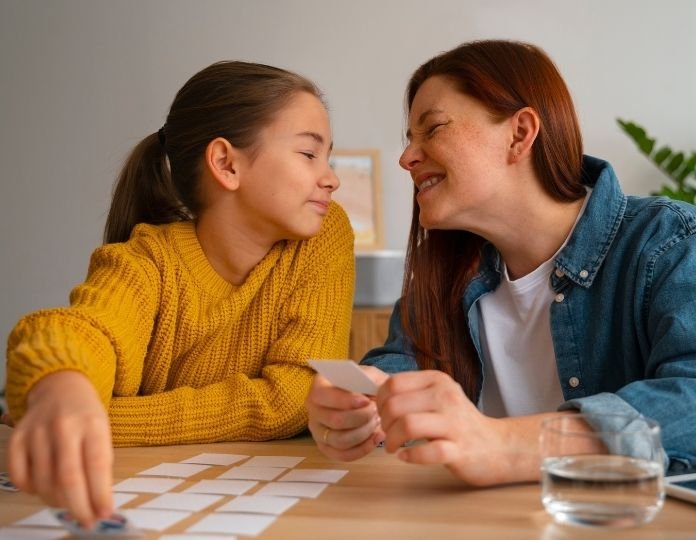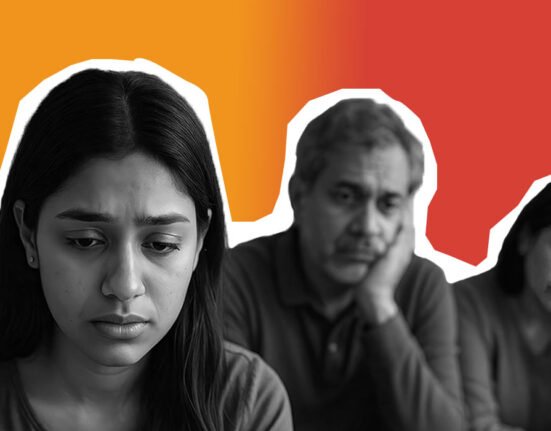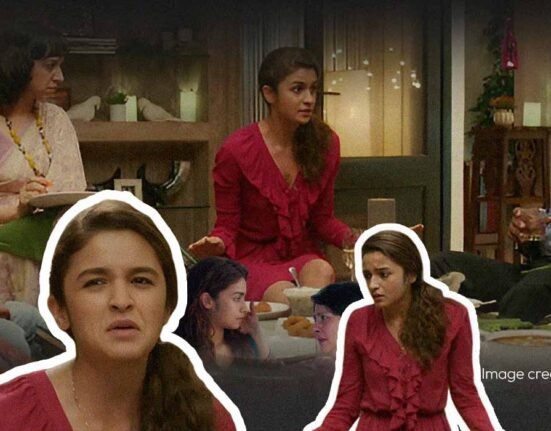Being vulnerable is being exposed, and that takes courage. Vulnerability allows you to be seen without any filter by the people who are close to you. Merriam-Webster’s dictionary defines vulnerability as the capability of being wounded, physically or emotionally. So, in its essence, vulnerability is opening up, sharing your struggles, expressing distress, asking for help, and letting others see your real, unfiltered self. It’s allowing yourself to be truly known, even when it feels uncomfortable or dangerous.
Vulnerability is often accompanied by fear, the fear of judgment, fear of rejection, or of being misunderstood. And that is how it truly reflects courage, as it takes strength to say that you are not okay or to ask for help. It allows you to be human. We foster trust, intimacy, and connection through vulnerability. By being vulnerable, we also give others permission to do the same; we create a comfortable environment for them. And parental vulnerability is one of the most courageous forms.
Read More: The Power of Vulnerability
The Influence of Culture
Parenthood is often idealised; society has created a picture of what parents should do and how. Parents are expected to be strong, composed, patient, know-it-alls, etc. But aren’t parents also humans? Don’t they have emotions? Don’t they also struggle? Or do people suddenly become perfect (and robotic) once they become parents? Why are parents expected to put on their brave face all the time? Especially in India.
Culture and society highly influence who we are and what we do. Individualistic and culturalistic societies have different values and norms. And this shapes everything, from emotions to thought processes and decision-making. Collectivistic cultures like India prioritise groups over self, thereby emphasising group harmony and maintaining “face” in society.

What others have to say about you is a big deal (Sadana, 2025). And thus, people in culturalistic societies are asked to suppress their emotions. Their feelings are neglected by saying that everyone goes through it, so shut up and deal with it. They are told that talking about their mistakes or weaknesses will cause people to use that against them, making them defenceless.
Emotional expression thus becomes a weakness in itself and is not encouraged. Hence, people in India, or other collectivistic societies, tend to be less vulnerable than their individualistic counterparts.
But all that isn’t true. Not being vulnerable and suppressing your emotions does more harm than one can imagine. People often have this myth that if someone is vulnerable, they are defenceless, that they can be harmed. But it is the total opposite, vulnerability allows you to take your shield down, welcome people and their opinions into your life. And after that, it’s your choice, you choose what helps you and is beneficial for you, and the rest can just pass by. It is your decision on what to react to and what not to.
Read More: Importance of Emotional Vulnerability in Relationship
Why should Parents be Vulnerable?
As children, we are all very open; we speak whatever comes to mind, no matter how that makes the other person feel or react. But as we grow older, that changes; we start to filter ourselves and everything we say. This is important mostly, but we must also learn to be vulnerable sometimes, at least with people important to you. So that they know and understand you.
So, as parents, it becomes crucial to be vulnerable so that your children connect with you, so that they know that they are understood, and so that they see that you’re not that different from each other (MacKenzie & Hilling, 2016). Being vulnerable is being expressive. It is accepting when you are wrong and apologising, it is asking for help, it is having tough conversations, it is feeling difficult emotions, and it is also sharing personal details that you may otherwise keep private. When you allow yourself to open up and share your life, your relationship with your kids will also widen.
Some benefits of parents being vulnerable (Brown, 2017; MacKenzie & Hilling, 2016):
1. Deeper Connection
When you are vulnerable with your children and share things (especially mistakes that you made) about yourself, your kids feel safer to talk to you and share themselves. If you tell them what scares you, they’ll tell you what scares them. When they understand that you are human too and feel all the difficult emotions, they will come to you when times get tough. They’ll know that you have been in their shoes and that you will listen without judgment and help them.
2. Fostering Empathy and Compassion
When parents are vulnerable and share the difficult parts of themselves, they exhibit empathy, compassion, and forgiveness for themselves and their own mistakes, as well as for others. This makes parents be seen more as humans, with imperfections, which builds a sense of understanding and empathy. It teaches children to learn from their mistakes and that asking for help is not a weakness, but a sign of courage.
3. Empowering Children
By sharing your choices and their consequences, you give your children some knowledge and wisdom in terms of experiences rather than lessons or instructions, which they are more likely to receive (afterall, there is a reason why moral stories work). This encourages children to take ownership of their lives and stand back up even after they fall; it tells them that they have everything they need. It helps them learn and grow.
4. Accountability and Change
Being vulnerable makes it easier to receive feedback and better ourselves. It allows you to be accountable. If your children can call you out for your mistakes, then you’ll be able to do the same more effectively. If you listen to and act on what they have to say, they will respect you and also modify themselves. Treating them like an equal and listening to what they have to say is helpful. This would lead to them coming to you and can also decrease rebellion.
These are just some benefits of being vulnerable, but in its entirety, it is a change beneficial not just for you but for the tiny little humans that you, as parents, shape. When you let go of the facade of perfectionism and worthiness, you’ll be able to fully live and enjoy all the messy and imperfect parts of life and encourage them to do the same – it is changing the outlook towards life as a whole.
Read More: What is the Stress Vulnerability Model?
How can we create a Space for Vulnerability?
Creating a space for vulnerability requires conscious, intentional effort. You choose to build an environment where people feel safe enough to drop their guards and share their true, authentic selves. Where they know they will not be judged, but rather be fully and completely accepted.
To start, model vulnerability yourself. It starts with you. Have the courage to accept the person you see in the mirror, be honest, don’t judge, that is how you help yourself first. Share your mistakes with them, acknowledge all the emotions you feel, apologise when you are wrong, and ask for help whenever needed. Let them see the imperfect, flawed, authentic version of you. Change does start with you, doesn’t it?

Create a foundation of trust; you trust them, and then they trust you. Listen actively and without any judgment, give them your undivided attention, and make them feel heard. Validate their emotions; they need to know that difficult emotions exist and are normal. Acknowledge them before being strong to open up to you and support whatever they need.
While also establishing clear boundaries. Respect trumps all else; acknowledge them as an equal. If someone was vulnerable with you, don’t break their trust. Don’t push someone to share, don’t shame them if they are not ready yet, respect “no”. Regular check-ins can help. Finally, be patient. Vulnerability can’t come in a day; it takes practice, and we often start small. The safe space needs to be a continuous process and requires consistent effort, as a trust once broken is hard to earn back.
Conclusion
So, are Indian parents allowed to be vulnerable? The simple answer would be not yet. Parents are asked to be “strong” for their children, but they don’t realise that vulnerability is strength. The coming generations are changing, so we hope that the answer to this question also changes into a yes with that.
References +
Brown, B. (2017). Daring greatly: how the courage to be vulnerable transforms the way we live, love, parent, and lead.
Cheng, A. W., Rizkallah, S., & Narizhnaya, M. (2020). Individualism vs. Collectivism. The Wiley Encyclopedia of Personality and Individual Differences, 287–297. https://doi.org/10.1002/9781119547181.ch313
Fritscher, L. (2023, November 20). How to be vulnerable. Verywell Mind. https://www.verywellmind.com/fear-of-vulnerability-2671820#toc-to-be-vulnerable-learn-to-love-yourself
Lotz, M. (2017). Parental vulnerability. Etikk I Praksis – Nordic Journal of Applied Ethics, 1,41-60. https://doi.org/10.5324/eip.v11i1.2246
MacKenzie, J., & Hilling, H. (2016). The Dadly Book of Open: How Cultivating Vulnerability Makes You a Stronger, Wiser and More Courageous Father.
Moore, M. (2022, October 11). The good kind of vulnerability. Psych Central. https://psychcentral.com/relationships/the-good-kind-of-vulnerability#tips
Sadana, S. (2025). Individualism vs. Collectivism: A Psychological Approach. The International Journal of Indian Psychology, 13(1). https://doi.org/10.25215/1301.129 vulnerable. (2025). https://www.merriam-webster.com/dictionary/vulnerability













Leave feedback about this